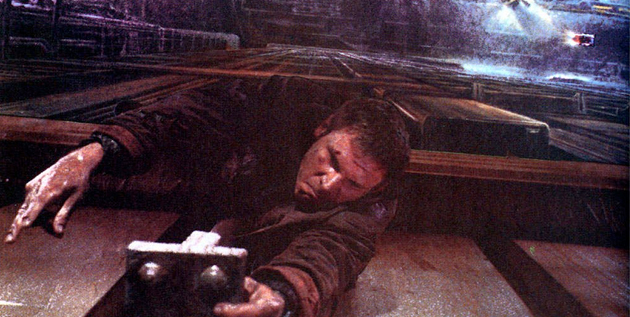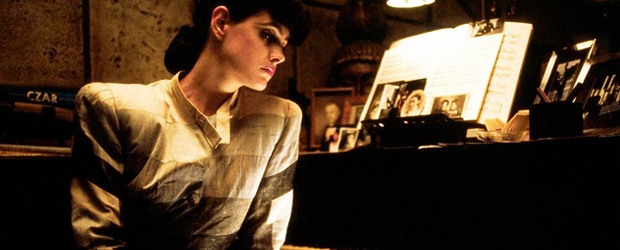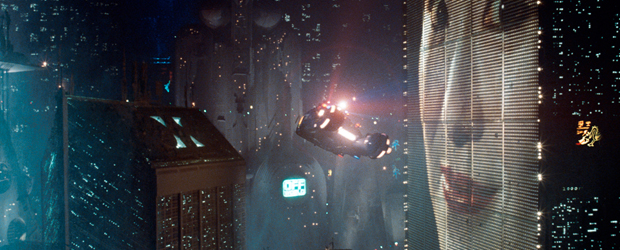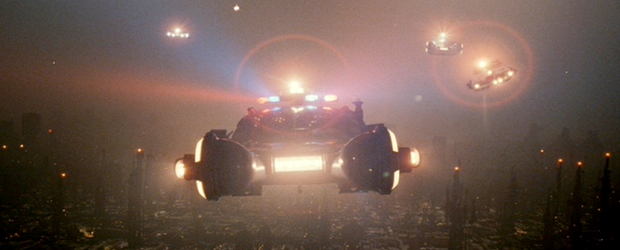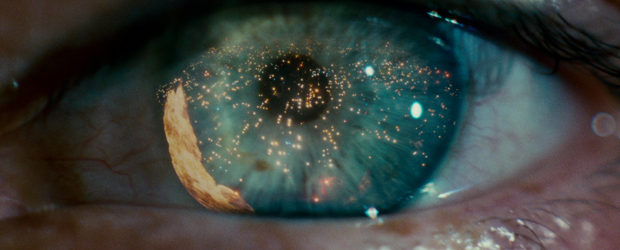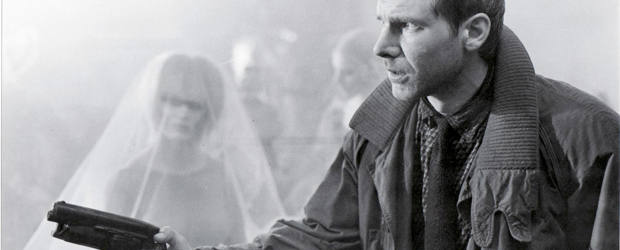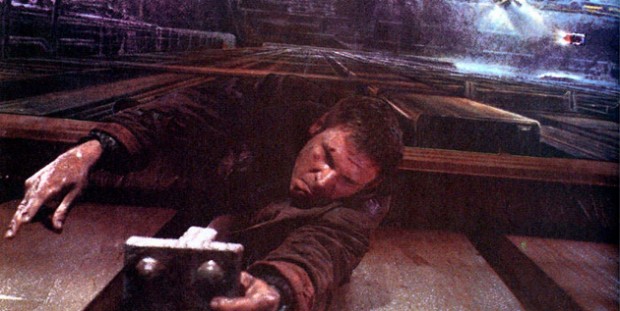
Well it’s official folks, a new Blade Runner is happening and, even more so, Ridley Scott has signed on to once again direct. Back in March, when Alcon Entertainment first acquired the rights, it seemed like it would take forever before someone set a new movie in motion. Yet here we are six months later with an announcement and the original director ready to take it on. After the news broke, 24 Frames caught up with Alcon producer Andrew Kosove to talk about what the new movie would entail. Since they are this early in development, with a writer still needed, not much detailed information was given. However, Kosove made it a point to tell the blog, and by proxy everyone on the Internet, that Scott’s new Blade Runner was not going to be a rehash of similar plots, themes, locations and characters. Instead, it would be something “wholly original” that will “stand as separately as possible” from the 1982 classic.
What does that mean exactly? Will it just have elements of the original in it, much like Scott’s upcoming Prometheus does with Alien? Will there be more of a connection than he’s letting on at this point? And more importantly, is this “follow-up” going to be considered a sequel, a prequel, or just something that takes place within the universe? Until we know more, we can only speculate. Luckily for me, I love to speculate and I’ve put on my Stick Stickly-brand “Thinking Cap” to come up with some ideas on how to change the story up and where it could go. Consider this:
Set the Movie Further into the Future
Considering it’s looking more and more like 2019 isn’t going to resemble the dystopian wasteland promised in the original Blade Runner, logic would dictate that if they go the more “sequel” style route they will have to jump ahead many years to avoid looking stupid. But I’m talking about moving it even further, like 50 years or more. By doing this, it frees up the ability to not have to stick with the way the world was in the first film. With an era change, there could be new issues to tackle. Replicants could have some sort of understanding with humans, Blade Runner units could be shut down due to massive psychological problems associated with the job (we’ll get to that later), or maybe even replicants have been discontinued and there’s something completely different being made in its place. By getting far away from the timeframe of the first Blade Runner, but still keeping one or two elements, it frees it from the shackles of having to adhere to the original’s rules.
Change Cities
This is probably the simplest way to separate the new Blade Runner from its predecessor; instead of having another story take place in Los Angeles, move it to any other big city. Switching cities allows for new characters and situations while allowing the look and feel of the original to survive, so as not to completely piss off the fanbase or make the Blade Runner property useless. A city like Boston or New York City (but mostly Boston, GO SOX!) could have a completely different culture from L.A. and in turn how they respond to replicants. Maybe they don’t find them as abhorrent; a different city may even be considered a safe haven for replicants. So what does that mean for Blade Runners? Do they even exist, or if they do, do they even do their jobs or is it just “in name only”? And who says it has to be an American city? Set it somewhere like Tokyo, where the culture is completely and totally different from ours, and you get all sorts of new things to play with. It may annoy moviegoers who fear people who aren’t from the U.S., but this is about the art! And also the money. Mostly the art though.
Take It Off-World
If changing cities seems boring, the new Blade Runner could just abandon the Earth altogether. In the original, there were air blimps that constantly promoted the idea of moving to an “Off-World colony” to start a new life. The Earth was in bad shape, so many took that as a viable option. But although it’s hinted it in the movie, we don’t really know much about it other than replicants are used for slave labor and the colonies exist because living on Earth has become hazardous to the continued existence of man. Instead of merely having another noir-inspired detective story, the new Blade Runner could explore life on these colonies and how it differs, or even if it’s truly better than living on Earth. This idea was explored by K.W. Jeter in his novel Blade Runner: Replicant Night, and he made the colonies seem like they were even worse and caused massive amounts of sensory overload. Making a movie about the Off-World colonies keeps it in the Blade Runner universe and potentially frees it from its detective trappings. As much as I’d love a good old fashioned sci-fi noir again, I would be completely okay with this.
Getting Psychological and In-Depth with Blade Runners
But let’s suppose that Scott has some grandiose idea that Alcon shoots down, saying that the new movie needs to involve replicants and Blade Runner officers. There’s still a way to make a compelling and smart movie out of it. Although we get a taste of the toll being a Blade Runner takes through the eyes of Deckard in the 1982 original, it could be explored even more. A Blade Runner may be killing androids, but they are androids with very human looks, feelings and emotions. That’s got to mess someone up, and in Blade Runner mythology there’s something called a “curve.” Once a Blade Runner goes over that curve, their career is essentially finished and they go into a psychological tailspin. Further exploration of this phenomena and its effects on the human mind could be an interesting angle to pursue that would keep the universe but turn the movie into a monster of its own. This could also encapsulate the Blade Runners who may like their job a little too much, taking their frustrations about the human race out on these robotic dopplegangers and getting a sick perverse thrill out of what amounts to legal murder. The job of a Blade Runner is interesting in its own right; it probably wouldn’t make a billion dollars at the box office but it could be done on the cheap and with a good enough script and cast, maybe even get some Academy buzz. People love crazy.
Tell It From the Replicant’s Point of View
The other easy route Scott could take with the new Blade Runner is to switch the perspective and tell the replicant’s side of the story. Although this was done in the 1982 original with Roy Batty seeking out Eldon Tyrell, he was still considered a villain; an empathetic villain but a villain nonetheless. A new movie could put them in a far more heroic light and it’s easy to do so; replicants are used as slave labor in Off-World colonies and treated like crap, despite the fact they are given programs that give them the same emotions as their human counterparts. So while a guy thinks he’s just sexually assaulting a robot, that robot reacts in the same way a human would and even internalizes it as such. The sympathy writes itself. I know a lot of movies use the “robots as slaves” allegory, but it could be done even more so here. The idea of replicant sympathizers has been explored by both the Jeter novels and the 1997 PC game, and a movie that maybe focused on their efforts could be an interesting watch on its own level. They could either be the passive kind who just help replicants by eliminating their life span, or they could be the violent kind that protest and destroy pro-replicant propaganda. There’s a massively political movie that could be made if Scott wants to pursue it, he’d just have to make sure it’d look and feel different from other movies like that.
The Blade Runner universe has all the trappings of a universe that could be expanded in many interesting and provocative ways, both as a blockbuster and a thought-provoking science fiction opus. Scott is looking to do this as differently as possible, but that doesn’t mean all the future installments have to be like that and once you throw in the older characters, that opens far more doors than you probably imagine. Like I said earlier I’m not sure what Scott’s new Blade Runner will turn out like or how it will differ, but I do know this: if any of these ideas end up being right, you bet your ass I’ll be first in line. And suing for royalties.
What ideas do you have for a new Blade Runner, be it Scott’s “wholly original” vision or just sequels/prequels/what have you of the 1982 original? Let’s get all fan fiction-y in the comments section like the nerds I know we are!

